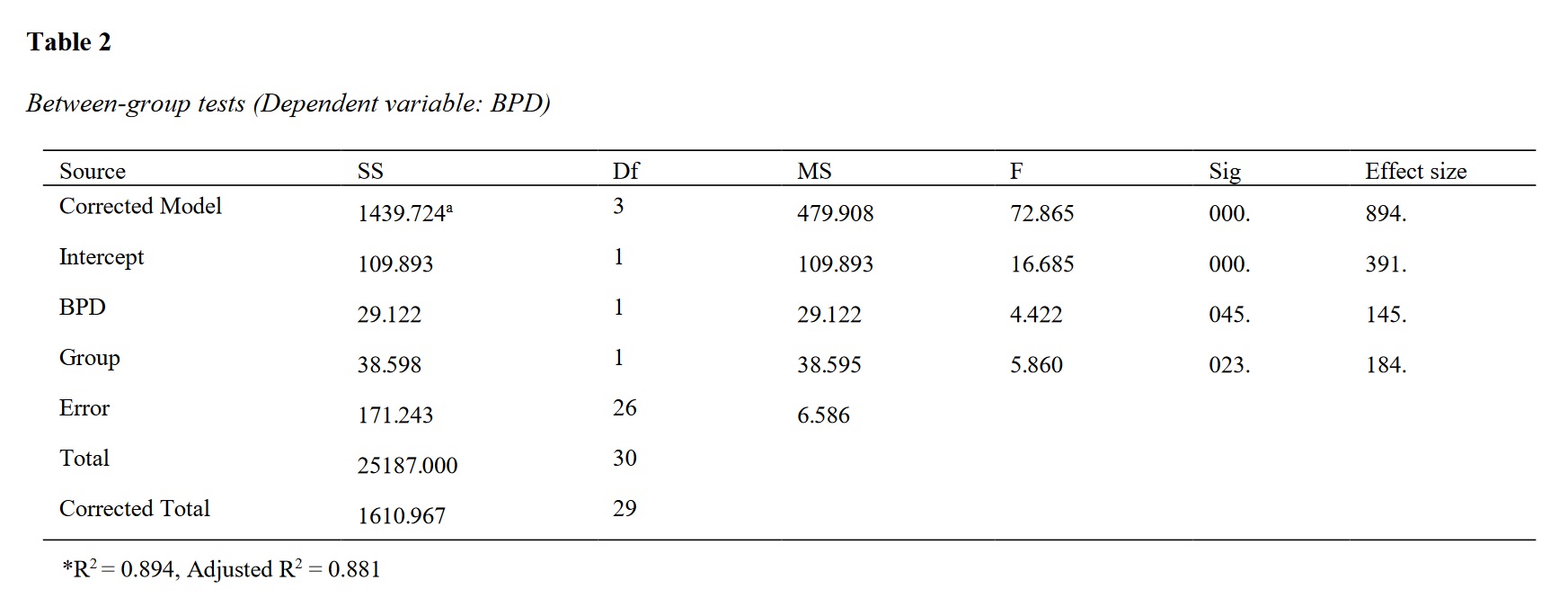The effectiveness of emotion-focused therapy on borderline personality disorder
Keywords:
Emotion-focused therapy, borderline personality disorder, personality disorder, psychotherapyAbstract
This study aimed to investigate the effectiveness of emotion-focused therapy on borderline personality disorder. The method of the current research was quasi-experimental, and the design used in this research was a pre-test-post-test design with an experimental group and a control group. The first measurement was performed by performing a pre-test before the group therapy sessions, and the second measurement was performed after the completion of the therapy sessions. The present study's statistical population comprised all people with borderline personality disorder who had visited two counseling centers of Hamta and Cheshm Andaz Roshan in district one of Tehran in 2022. In order to form two groups, subjects were selected using the purposeful sampling method and then using the matching method, 15 subjects were assigned to the experimental group of emotion-focused treatment and 15 subjects were assigned to the control group. Leichsenring‘s borderline personality scale (1999) was used to collect data, and analysis of covariance and SPSS software were used for statistical data analysis. The observed F-value for the desired variable in the adjusted model (adjusting the pre-test effect) is equal to 72.865 and its significance level (sig) is also equal to 0.000, which indicates the existence of a significant difference between the post-test score in the experimental group and the control group. Therefore, the main effect of the group variable is significant. Emotion-focused treatment affects the treatment of borderline personality patients with an effect size of 0.894.
Downloads

Downloads
Additional Files
Published
Issue
Section
License

This work is licensed under a Creative Commons Attribution-NonCommercial 4.0 International License.






